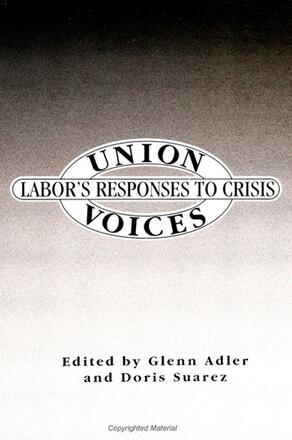
Union Voices
Labor's Responses to Crisis
Alternative formats available from:
Description
The contributors to this book are labor activists reflecting on their direct experiences and their union's efforts to address the serious problems facing them in a rapidly changing political and economic environment. The authors discuss now new forms of international competition, corporate restructuring, technological innovation, and the anti-labor policies and prejudices of recent national administrations have undermined union strength and influence, reflected in steeply declining membership and the erosion of workers' rights and living standards. The book is anchored in the reality of workers day-to-day struggles.
Union Voices focuses on three central issues which confront all workers and unions: first, changing technology and work organization, especially its effect on health and safety and worker displacement, and union responses to the new workplace; second, the impact of the changing economy on workforce composition and the problem of responding to the needs of new work constituencies, especially among women and new immigrant groups; and third, the question of developing new union practices, especially to promote alliances between unions and other social movements, both nationally and internationally.
Glenn Adler is Lecturer in Sociology at the University of the Witwatersrand, in Johannesburg and a member of The Sociology of Work Program. Doris Suarez is in the Political Science department at the Graduate School of the City University of New York.
Reviews
"This book is unique in that it is a non-academic treatment, or more accurately, an academic treatment by non-academics, informed by their trade union experience. It gives an unvarnished view of worker's day-to-day struggles, including both victories won and defeats suffered." — Gilbert J. Gall, Pennsylvania State University
"I like the direct experience of workers expressed in their terms. The text completely belies the negative stereotype about labor union leaders. It shows the considered responses to the manifold changes in the workplace that have challenged accepted ways of doing things and indicates the readiness of the rank and file to respond flexibly to the new demands put upon them.
"I think there is no more significant set of issues in today's labor scene. The future of American industry and economy is at stake. Workers are the only sector making as their primary goal the stabilization of employment and the workplace at home. The way in which these rank and file members address this issue is a convincing demonstration of their capability and the need to place more responsibility on them rather than a footloose management in the governing of our economy." — June C. Nash, City College of New York